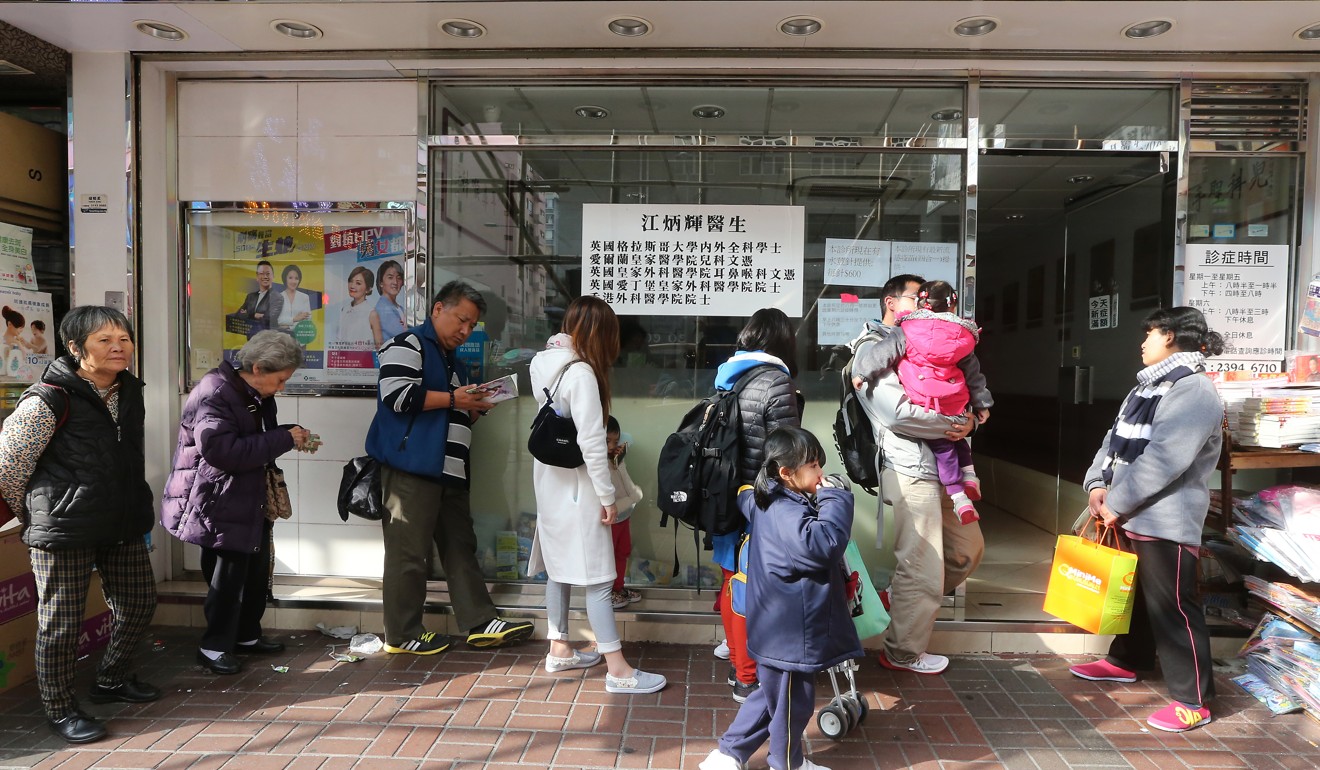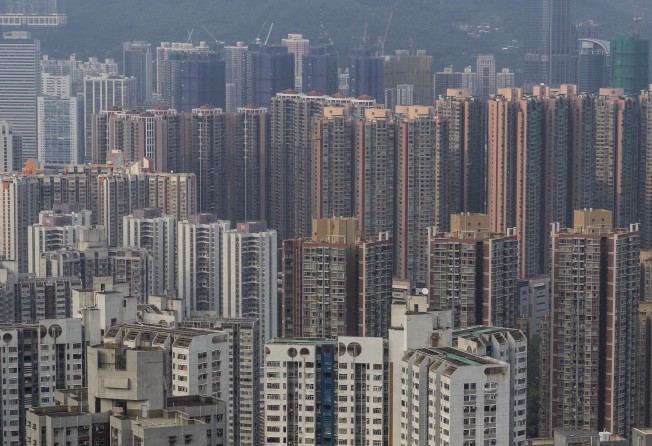
Fast-ageing Hong Kong district Kwai Tsing to test drive subsidised health care plan
Community hub first of planned network to be rolled out across city’s 18 districts as officials look to ease burden on public hospitals

Patients seeking out medical care at a new community health care hub in a Hong Kong district with one of the city’s fastest-ageing populations will get a government subsidy and fee caps on services.
Details of the plan were revealed in a government paper on Tuesday, which set out proposals for a district health centre in Kwai Tsing, which is expected to open in the third quarter of 2019.
First announced in Chief Executive Carrie Lam Cheng Yuet-ngor’s policy address in October last year, the centre is the first step towards a primary health care network across the city’s 18 districts.
The aim of the network is to ease the burden on overstretched public hospitals and cater to the greying population, and the expected increase in residents with chronic health problems.

Compared with the city’s overall population, Kwai Tsing, which according to the 2016 government figures had some 511,000 residents, was found to have a higher prevalence of residents with hypertension and a history of smoking.
The district is also projected to have the second highest proportion of elderly people by 2026, with 24.9 per cent of its residents aged 65 or older.
According to the latest paper submitted by the Food and Health Bureau to the Legislative Council, the centre would mainly focus on four types of services: health promotion, assessment, chronic disease management and community rehabilitation.
It would prioritise handling patients with chronic diseases such as hypertension, diabetes and obesity.
The government plans to offer a flat-rate subsidy for each medical consultation under the centre’s network, but it would be up to the doctors to decide whether to charge patients extra. These charges would depend on certain conditions and the medications needed by individual patients.
For other health services, such as those offered by physiotherapists and occupational therapists, there would be a cap on fees paid by patients.
Health Care Vouchers, an existing scheme which provided subsidies for Hongkongers aged 65 or older to use private health care services, could also be used at the centre. Patients who were on Comprehensive Social Security Assistance (CSSA) could seek full reimbursement from the Social Welfare Department for the health service fees.
The bureau aims to launch a tendering exercise for the centre’s operator by the end of September at the latest, and wants to identify an operator, preferably a non-government entity, by the first quarter of next year.
Patients’ rights advocate Tim Pang Hung-cheong said any subsidy offered by the government should cover at least 80 per cent of consultation fees at the centre.
Apart from patients who are on CSSA, Pang said those on other types of government subsidies, such as Working Family Allowance, should receive full exemption of medical fees as well.
Meanwhile, the bureau also released the latest proposal for regulating medical devices. The move came after a beauty treatment blunder in 2012 that killed a woman and injured three others.
Under the new guidelines, high-risk devices would be required to be registered before being supplied to the local market.
A transitional five-year period would be implemented, during which the industry would have to get devices to meet an official standard set by the Department of Health.